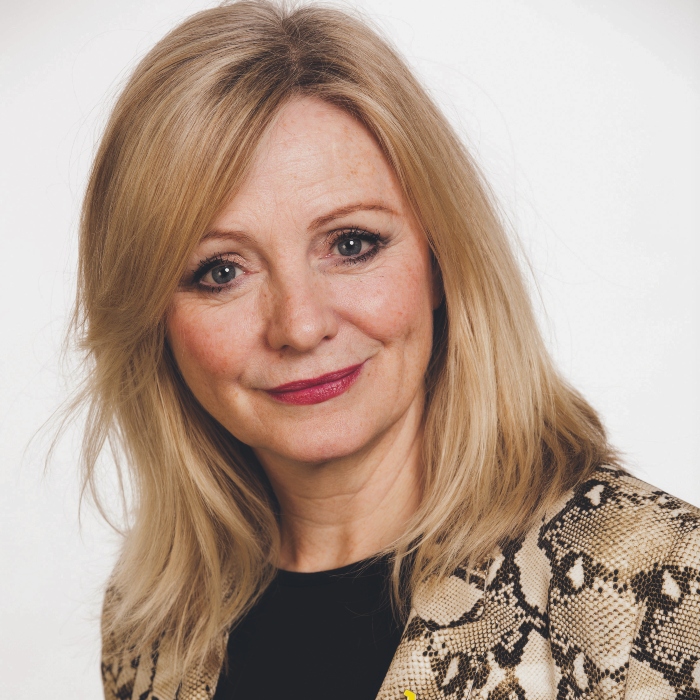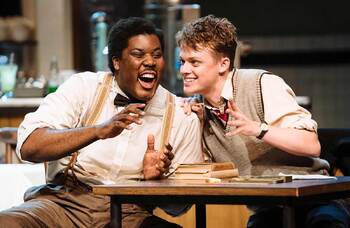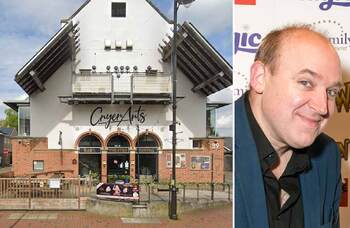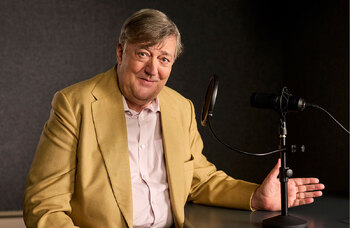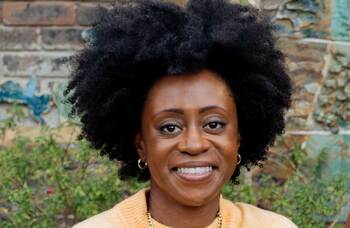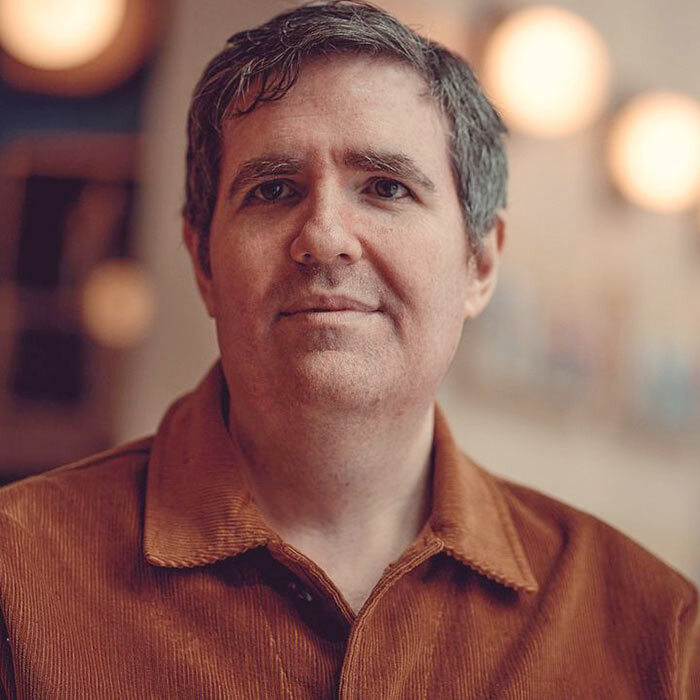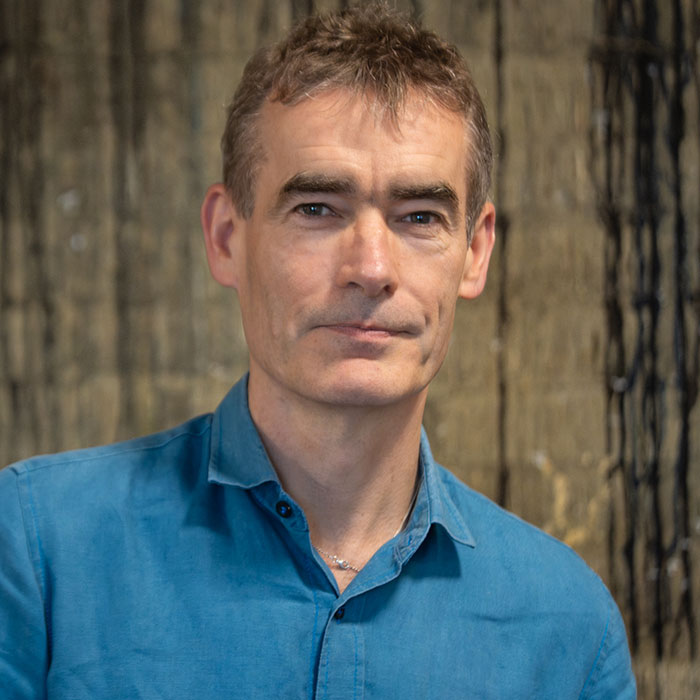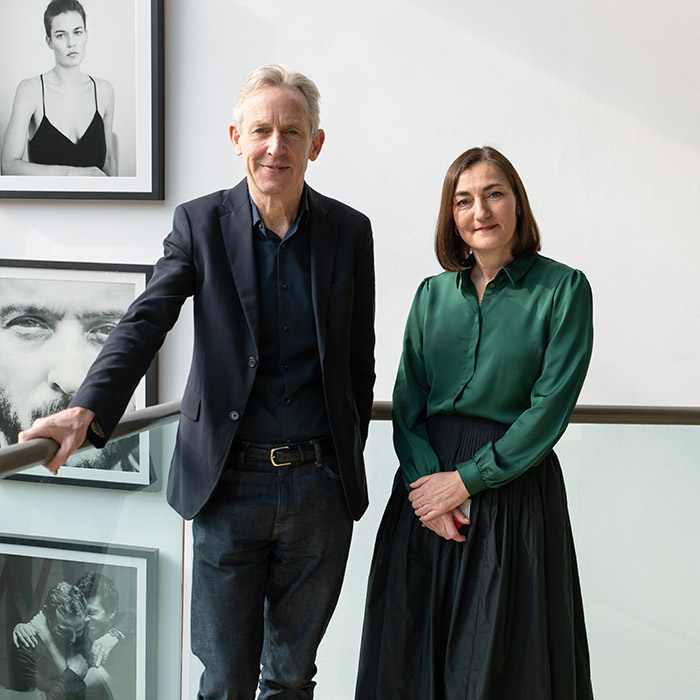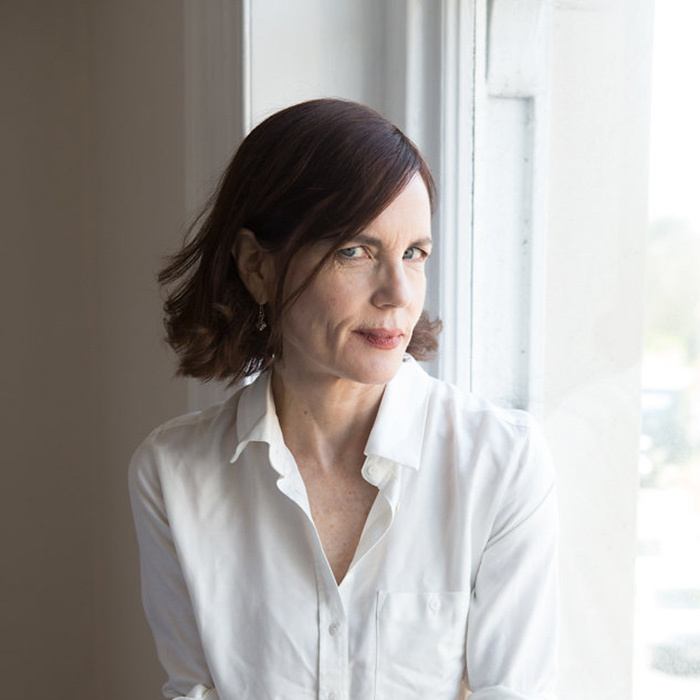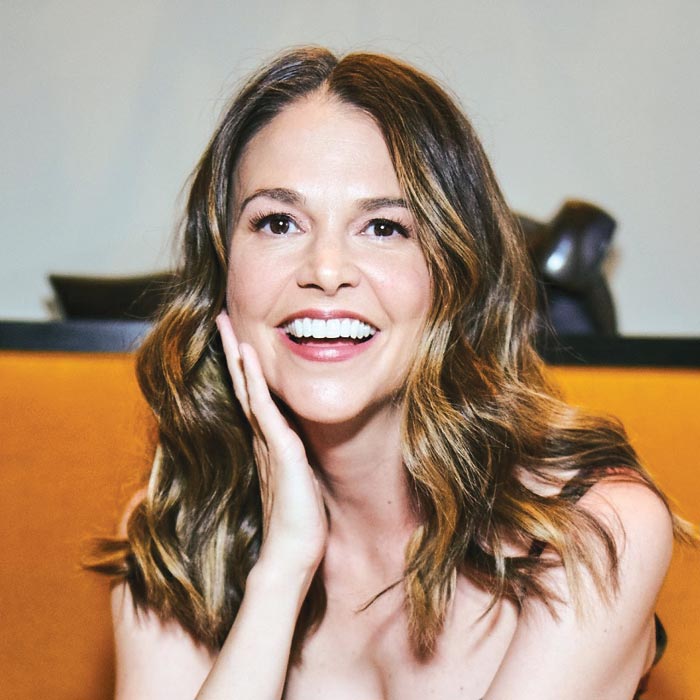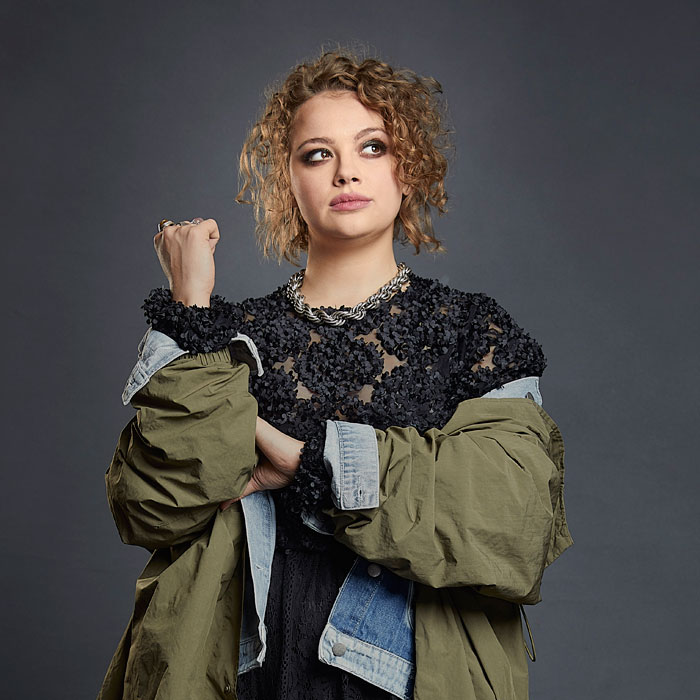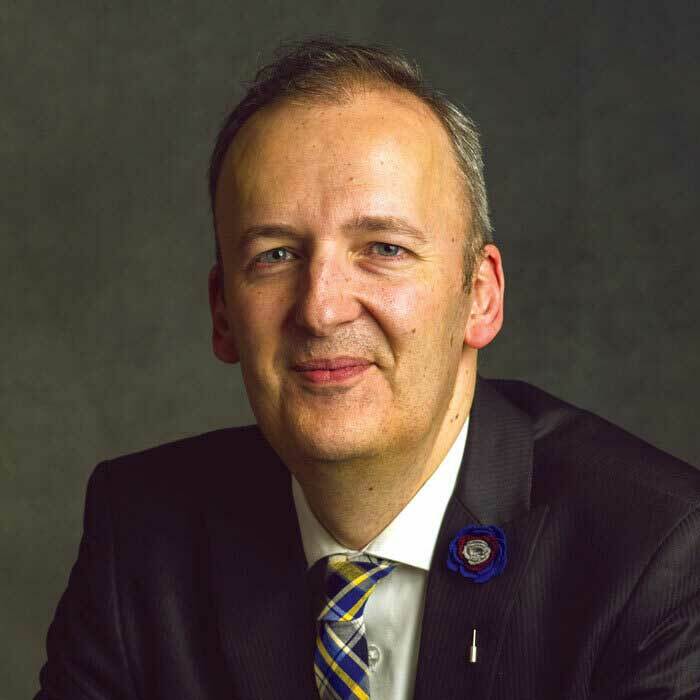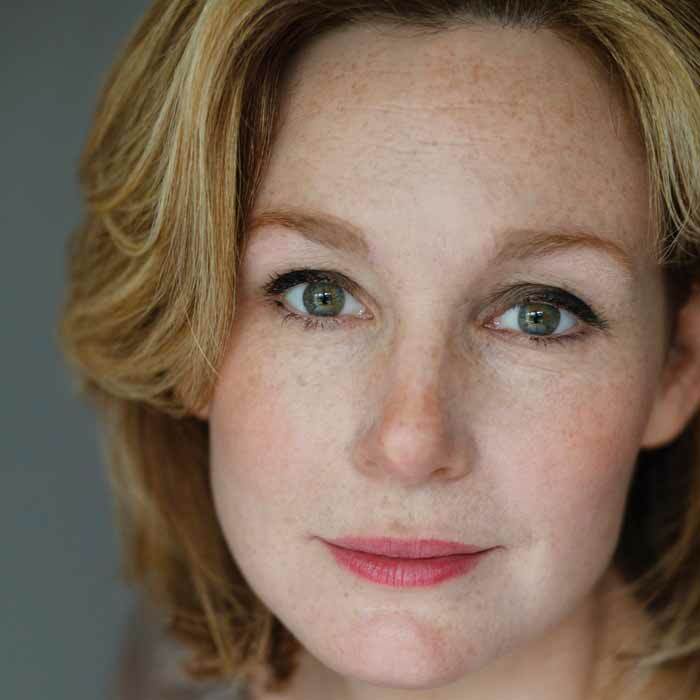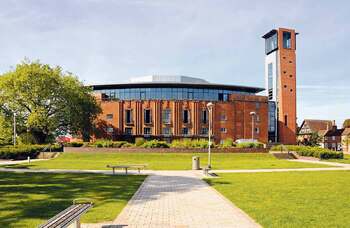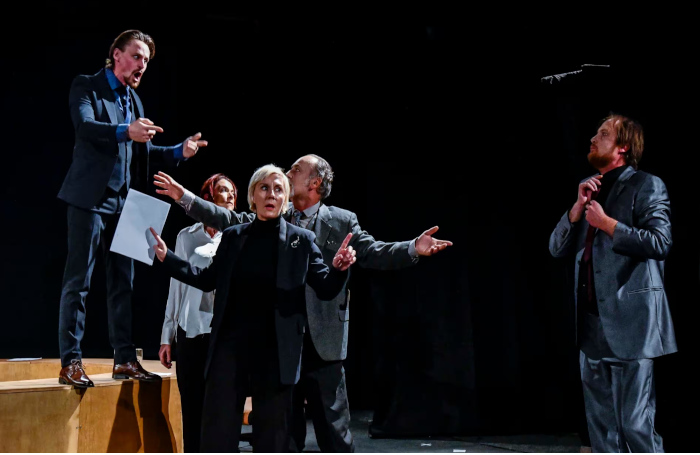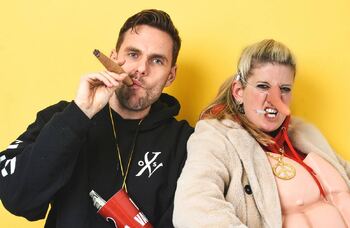Tracy Brabin
 Tim Bano
Tim BanoTim Bano is an award-winning arts journalist who has also written for the Guardian and Time Out, and worked as a producer on BBC Radio 4. ...full bio
Real-life tragedy in Tracy Brabin’s hometown catapulted the former theatre and TV actor into the political spotlight. A year after she was elected MP for Batley and Spen, the seat held by her close friend Jo Cox, murdered in 2016, she tells Tim Bano how she plans to use her position in the shadow cabinet to champion the performing arts
On June 16, 2016, Tracy Brabin received a phone call. As she sat in the kitchen of her London home, her sister rang to say that their mother, who was attending a craft session at a community centre in Birstall, West Yorkshire, was caught up in an armed siege.
Outside the centre Jo Cox, Brabin’s friend and mentor and member of parliament for Batley and Spen, had been attacked. The next few hours were a blur, Brabin recalls: “I was Googling it to try to find out… there’s a man with a gun, what’s going on? Only to then find out someone was shot, then that it was Jo, then I was hoping she’d still make it, then she was taken in a helicopter to the hospital, but I didn’t realise at the time that she was already dead.”
Just over a year later, Brabin’s life has changed dramatically. After more than three decades as an actor, and two as a writer, she called time on entertainment when the Labour Party selected her to succeed Cox’s seat.
“I’ve always worked with the Labour Party, I’ve always campaigned with them,” Brabin explains. “Doorknocking with Jo in my constituency, where my family are and where I grew up, and spending time with her just made me think: ‘Oh my God, this is how you do it’.
“She was the one that said, ‘You should think about a career in politics.’ Then when she was murdered, my local Labour party asked if I’d stand. But, like in any audition, 70 other people stood so I thought I’d just walk through the door with no expectation.”

Yet, Brabin was selected to fill Cox’s seat and she became an MP on October 10. When Theresa May called a snap election eight months later, she had to fight again. “This new general election was really powerful for me. I had to say to the electorate: ‘Will you vote for me? Not for the legacy, not for other reasons, will you vote for me as your champion in Westminster?’”
They did, and Brabin is now a frontbench MP, as well as shadow minister for early years, which sits within the shadow education team. “It did feel like being hit by a truck,” she says. “Let me say that there are people my age [56] who are thinking about retiring, and I’m now on the steepest learning curve of my life.” And this is coming from a woman who’s survived weekly rep.
The day we speak, she has already been grilled on the BBC’s Daily Politics over Labour’s public sector pay cap figures, and then on Radio 4’s World at One. She is, unsurprisingly, a bit frazzled.
In the atrium of Portcullis House, across the road from the Houses of Parliament, Brabin tells me that she’s been in the Commons until midnight for the past few days after two crucial Brexit votes and a debate on adjournment.
Talking to The Stage may be a respite, I suggest. “I feel I’m among my people,” she responds, genuinely pleased to be able to park the pay cap and talk about acting, a world she’s known for so many years.
Growing up on a council estate in West Yorkshire, Brabin had set her heart on being a performer. “I knew from a very young age, five or six, that I wanted to be an actor. I don’t know where that came from. You just know it,” she says.
The problem was a complete lack of access to the industry. There is, she says, a gap between the ambition of being an actor and the practicality, which is particularly pronounced for someone from a working-class background, and not already being well connected in the business. “Knowing I wanted to be an actor but knowing I didn’t know anyone” is how she describes it.
Continues…
Q&A: Tracy Brabin
What was your first professional theatre job? Sally Bowles in Cabaret, Regent Theatre, Dorset.
What was your first non-theatre job? Sweeping up in a hairdresser’s.
What is your next job? MP for Batley and Spen.
What do you wish someone had told you when you were starting out? You’re better than you think.
Who or what is your biggest influence? Jo Cox was my biggest mentor. Michelle Obama, how she can be so cool under pressure.
What’s your best advice for auditions? Let them come to you.
If you hadn’t been an actor and writer, what would you have done? I’m doing it.
Do you have any theatrical superstitions or rituals? No, but I did get in the habit of saying all the lines from The Winter’s Tale before I went on just to get myself into the headspace of the iambic pentameter.
It becomes clear that acting and politics have never been entirely separate entities for Brabin. “I went to a fine school,” she explains, “got 11 GCSEs and four A levels, and I’d been very involved in drama all the way through. But my careers adviser said I could be an air hostess. They wouldn’t offer drama school because they wouldn’t know where to start.”
And suddenly she shifts into political attack mode, going after the government’s controversial English Baccalaureate scheme, which emphasises science, maths and technology over arts subjects in schools.
“It’s a disaster,” she says. “What you’re doing is making young people into robots that regurgitate facts. The government wants to turn education back decades.”
What the EBacc does, according to Brabin, is cut off access to the arts at a young age. “This is a sector that employs so many people – why are they closing off the opportunity at this stage? This is a massive industry and we particularly need to give working-class kids an opportunity to understand that these jobs exist.”
Arts in education clearly matters a great deal to Brabin, and she’s proud of the fact that she was the first in her family to go to university, studying drama at Loughborough University.

After graduating, although offered a place to do a master’s in acting at Webber Douglas (the drama school that merged with Central School of Speech and Drama in 2004), Brabin had to turn it down. “I didn’t know anybody, I had no money and I’d never been to London,” she says. “I was afraid.”
So, she sang in a band, until her friend demanded that she come and sleep on her floor in London.
The penniless Brabin received support from the Department of Social Security, which “got me on my feet” and then landed her first job doing a summer season in Dorset – “Cabaret, Who’s Afraid of Virginia Woolf and some Noel Coward play.” She said it was “proper rep”, adding that the money was poor but she got to play Sally Bowles in her first job.
The trouble was she didn’t have an Equity card. So once the summer season was over, she stayed in Dorset with one of the other actors, and they set up a company doing road safety shows for schools. That led to a number of years doing council-funded theatre in education.
Unable to get an agent, Brabin joined a cooperative, where actors devoted some of their time to representing each other. One day, a brief came in from Yorkshire Television looking for a clumsy, northern girl. “I hadn’t been spun by drama school, they thought I was the real deal,” she says.
She then landed her breakthrough television role in ITV sitcom A Bit of a Do in 1989 as clumsy waitress Sandra opposite David Jason. It sparked a series of TV roles and five years later she ticked the ‘authentic Yorkshire girl’ box once again as Ginnie in Richard Harris’ cricket sitcom Outside Edge, alongside Brenda Blethyn and Timothy Spall.
Despite the TV roles, Brabin never strayed far from theatre, appearing in Patrick Hamilton’s The West Pier in Brighton, a Mike Stott play in Canterbury and an adaptation of Henry Fielding’s epic novel Tom Jones in Worcester. She also appeared in The Rise and Fall of Little Voice at Derby Theatre in 2014.

It was while working on Outside Edge that Brabin got a role in Coronation Street as Tricia Armstrong, between 1994 and 1997. But, with a six-month-old daughter and a husband in London, spending five or six days a week on set in Manchester proved to be too much. “I looked around the green room and thought: ‘So many people split up from their partners, I just don’t know if I can pay that price.’ I really had to rethink what I was doing.”
The rethink, and a need for more income, led her to study for a master’s in screenwriting, and she got her first commission writing for Crossroads before going on to children’s TV series Tracy Beaker and Channel 4 drama Shameless.
Pay in the arts remains a huge issue. “The cost of living has risen, wages have frozen, there are so many opportunities to work for low pay or no money. No longer having the rep theatres regionally has a massive impact on not having the opportunity to train. I’m not sure it’s better.”
Although Brabin was “dead broke” at the time, Equity’s trust fund paid her fee. “I’m always astounded by how generous the members of Equity are, and actors more generally,” she says.
So where did the political interests start? “Growing up, being homeless and my family getting a council house, being the first in my family to go to university, and being around people with more privilege, that is quite a political driver,” she says and then pauses.
She can point to the event that politicised her: she was attacked in the street by a stranger, who then went to prison. The attack also made her a feminist. “Why did he do this to me? Not because he fancied me, he did it because of power.”
She became active in the women’s movement, which led to her being involved with the Greenham Common Women’s Peace Camp in the early 1980s, fundraising for striking miners and their wives. “And I worked between acting jobs on a magazine called Marxism Today, which was at the time a New Statesman-type magazine, an essential read for the left.”
She was in the advertising department, hanging around people like Guardian columnist Suzanne Moore, economist and prominent Communist Party member Sam Aaronovitch, and playwright David Edgar. “I really learned such a lot about the way the world is. So it completely politicised me.”
Brabin adds: “All along the line I’ve been campaigning on the side. Once you start to see how other people live, I think you would be hard pushed not to become political.”
Continues…
Tracy Brabin on…
… the problem of low pay in the acting industry
Sustaining a career as an actor is a matter of incrementally getting experience, but that unfortunately often means working for nothing and that has got to stop. As parliamentarians, we should be banging on the doors of theatre companies and production companies and saying: “You cannot pay your actors less than the minimum wage.” And particularly if you have public money, from the Arts Council for example, there is no way you can be paying less than the minimum wage. Acting is not a hobby. It’s not something we do for fun. This is how we pay our bills.
Now she’s also in a position where she can raise the profile of the performing arts in Opposition. I ask Brabin what the perception is about culture among her parliamentary colleagues. “I will say I’m very glad I’m here. Because there’s nobody else in that chamber with my experience.” That seems to be a polite way of saying most MPs couldn’t care less about the arts – even some of the culture secretaries. “If you’ve been it and you’ve lived it, you can be a champion,” she continues.
MPs have always been split personalities: representing their constituents on the one hand, and doing their Westminster duties on the other. Brabin has been involved in two major projects recently, neatly highlighting that division.
One was a production of Les Miserables by a youth theatre group in Batley and Spen, put on in honour of Cox, as it was her favourite musical. Nick Evans, director of Billy Elliot, approached her. “We wanted to bring the West End experience and expectation of talent to our community and to give working-class young people an opportunity,” she says. This was not just about being on stage but offering backstage jobs and training.
The other project, in Westminster, was a parliamentary inquiry she worked on led by Tom Watson called Acting Up. Alongside Gloria de Piero, she examined the so-called ‘class ceiling’ in the acting profession – that is, whether people from working-class backgrounds are at a disadvantage in the industry.
As Brabin talks about the inquiry and the Les Mis performances, it becomes clear that, in her mind, they are not separate projects. “My vision,” she explains, “is to take what we’re doing in a parliamentary way, and actually put it on its feet.”
The Acting Up inquiry was published in August, and the barriers to access that Brabin and de Piero highlighted were pretty shocking.

Brabin says it’s barely changed since she went for that first audition for A Bit of a Do: “I was in London trying to get a break, and had to pay for my own train ticket to get to Leeds for the interview. This is increasingly a barrier for actors trying to get into the industry, the level of expectation of what they have to pay for: spotlight, headshots, travel to auditions, the right costume, the right pair of shoes, haircut, and taking time out of your day job in order to rehearse the work you’re supposed to perform in the audition. And then nine times out of 10 you don’t get the job. We are investing in our own industry, but we’re taking a big hit.”
So what is she going to do about it? “Hopefully once we’ve got all the feedback from that report, and when we come to look back at our manifesto – if we’re going into another general election – what we’ve unearthed there, we will definitely do that.”
Her passion for the industry is apparent, as is the dedication to her new job. She hasn’t found it that hard, she says, leaving the acting and writing worlds behind.
“Prior to becoming an MP I’d just played Paulina in The Winter’s Tale at Guildford Shakespeare Company. I’d never done Shakespeare before, and then I went to Singapore to be in Noel Coward’s The Vortex with Jane Seymour. So I’ve had an amazing career – and what a gift to get the chance to do another one. I don’t miss it, I don’t yearn for it. I actually don’t want it. I want this, this is my life.”
So we won’t see Brabin playing King Lear at the Old Vic in 25 years’ time like actor-turned-MP-turned-actor Glenda Jackson? With a characteristic laugh she says, very firmly, “No.”
CV: Tracy Brabin
Born: 1961, Mirfield, West Yorkshire
Training: BA in acting, Loughborough University; MA in screenwriting, London College of Communications
Landmark productions: TV: A Bit of a Do, ITV (1989), Coronation Street, ITV (1994-97). Theatre: The Winter’s Tale, Guildford Shakespeare Company (2016)
Agent: none
Big Interviews
Recommended for you
Opinion
Most Read
Across The Stage this weekYour subscription helps ensure our journalism can continue
Invest in The Stage today with a subscription starting at just £7.99
